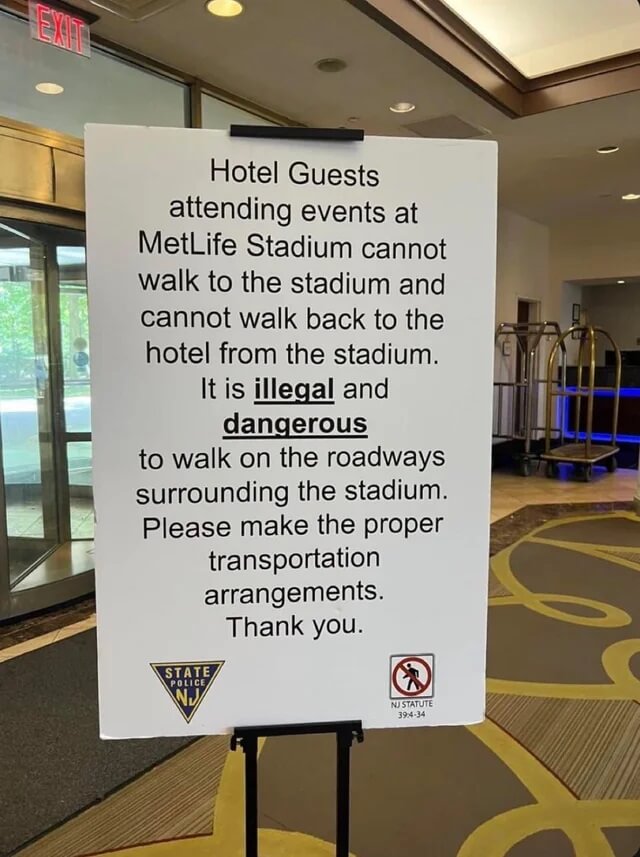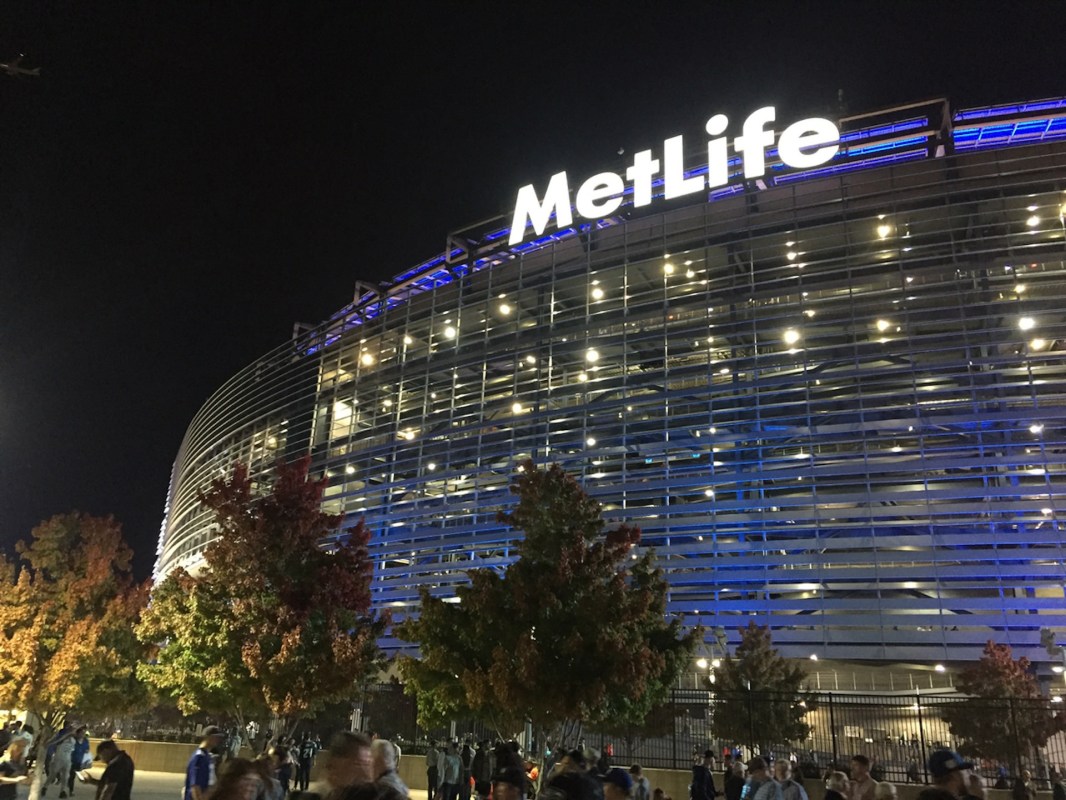A New Jersey hotel near MetLife Stadium posted a warning to its guests: Walking to the nearby stadium, just across the highway, was prohibited. The announcement sparked frustration online as commenters discussed the need to make the venue more pedestrian-accessible.
"Walking is canceled," one Reddit user wrote alongside a photo of the hotel's warning in the subreddit r/UrbanHell. The sign reads: "Hotel Guests attending events at MetLife Stadium cannot walk to the stadium and cannot walk back to the hotel from the stadium. It is illegal and dangerous to walk on the roadways surrounding the stadium. Please make the proper transportation arrangements. Thank you."

Commenters who had visited the stadium confirmed the hotel's warning."That whole complex is a nightmare … It's almost like it was designed specifically to ensure you could never evacuate a large volume of cars quickly in an emergency situation," one person wrote.
"If you tried to walk to any of the nearby hotels by foot, despite only being across the street, you'd be playing chicken with 10 lanes of 60 mph traffic," another commented.
"This whole thing looks like it was designed by someone who hates human beings," someone wrote.
Indeed, studies have shown that increased traffic, along with vehicular stress, are linked to negative health outcomes and depression — an unsurprising find, considering that traffic frustration is so common, there's an entire category of anger named "road rage."
🗣️ Would you want a high-speed railway in your state?
🔘 YES 👍
🔘 NO 👎
🗳️ Click your choice to see results and speak your mind
There is also toxic carbon air pollution to consider — transportation generates nearly a third of the emissions in the United States. When you consider just how car-centric our cities and our lives are, the potential negative effects seem even more serious. "If you go to a game at MetLife it takes longer to get out of the parking lot than you'll spend at the actual game," someone commented.
In contrast to the adverse effects of car use, both walking and public transportation are linked to improved health outcomes and lower risk for multiple health conditions. This is part of the reason that there's a growing anti-car movement, which supports the use of cars as a "last resort, not a first option."
The movement is aided by organizations such as WalkScore, a website that helps assess the walkability of a neighborhood. In addition to these resources, some cities have tried to become more walkable and discourage car use — from incentivizing public transportation to overhauling entire highway systems.
Join our free newsletter for cool news and actionable info that makes it easy to help yourself while helping the planet.









